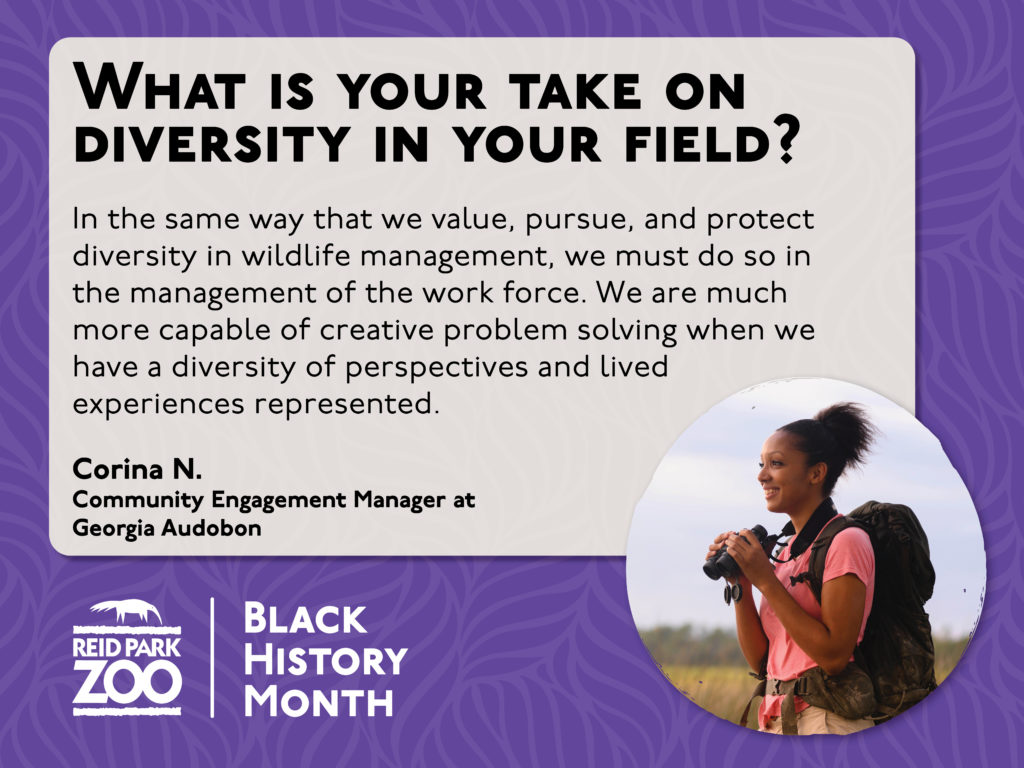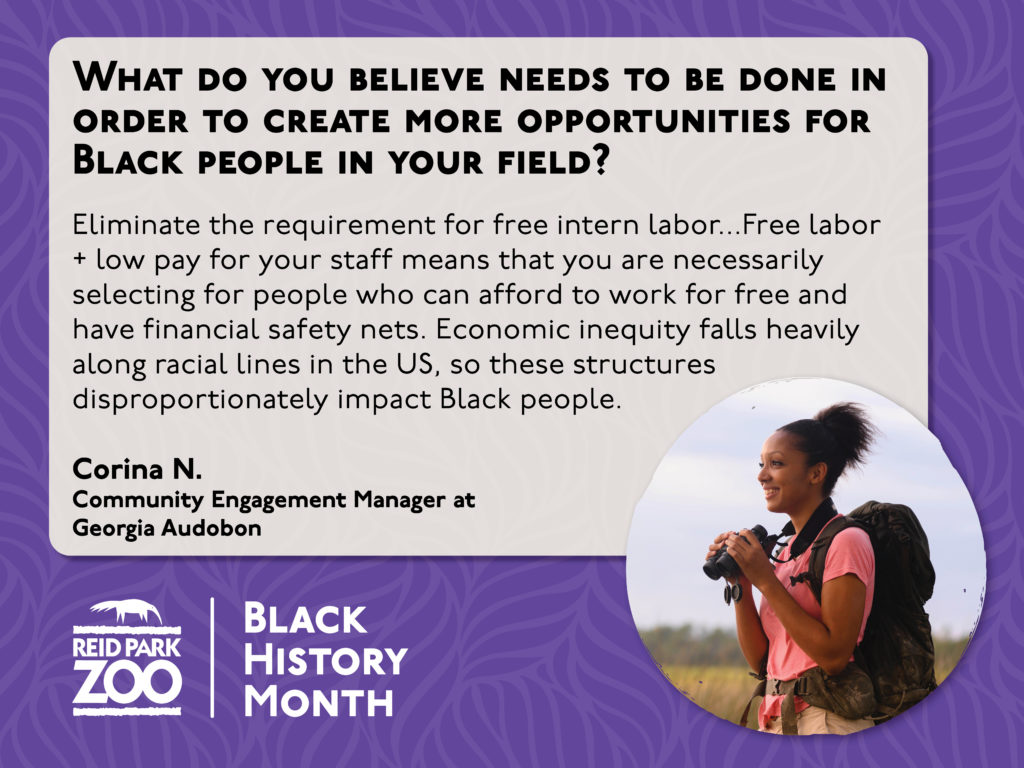Black in Nature: Featuring Corina Newsome

This post is part of “Black in Nature: Tackling Diversity in Conservation,” a Black History Month series giving Black people who work in animal care and conservation a platform to share their experiences and spark the conversation necessary for change. Learn more here.
Corina Newsome is a graduate student at Georgia Southern University with a focus on climate change and threats to seaside sparrows native to the area. Corina says the biggest challenges facing wild places and wild animals is colonialism.
“Colonizers have valued spaces and wildlife over people, and many ‘solutions’ have been at the expense of people, or have not prioritized the concerns, desires, and leadership of marginalized people groups, especially indigenous people. Indigenous perspectives and leadership need to be at the center of our efforts. Wildlife solutions that disenfranchise already marginalized people will ultimately not be successful, and are inherently unjust.”
Not only is Corina an advocate for the environment and its occupants, but she also has become an advocate for those least welcomed in those spaces. Corina has been gaining a platform as one of the co-organizers of Black Birders Week; a response to the racism unjustly received by Christopher Cooper, a New York birder. As a birder herself, Cooper’s story hit close to home. Now as an employee of the Georgia Audubon Society, she has the ability to educate the public on issues facing marginalized groups enjoying and working in nature.
For her, being Black in conservation means using her very presence to help change the way people view wildlife conservation as a whole. “My perspective allows me to detect and address issues of inequity affecting Black people that would otherwise go unnoticed or un-prioritized in all-white work environments. I was always the only Black zoo keeper in every animal care job I’ve had. I have also, unsurprisingly, had to work in environments with discriminatory behavior and overt racism from coworkers. It’s exhausting. Thankfully, I have had the flexibility to incorporate programming to address issues of exclusion in animal care during my time as a keeper.”
Because Corina is normally the only Black woman or person of color in the room, she understands, first hand, how imperative diversity in her field is. “Diversity is severely lacking, and is a detriment to the success and effectiveness of this field. In the same way that we value, pursue, and protect diversity in wildlife management, we must do so in the management of the workforce. We are much more capable of creative problem solving when we have a diversity of perspectives and lived experiences represented.”
Yes! Diversity is essential to the success of any organization, but how do we diversify? Corina points out a few key steps: “Eliminate the requirement for free intern labor: PAY YOUR INTERNS. Pay your animal care staff a living wage. Free labor + low pay for your staff means that you are necessarily selecting for people who can afford to work for free and have financial safety nets. Economic inequity falls heavily along racial lines in the US, so these structures disproportionately impact Black people.” Corina is doing her part in this area as well by “Founding and directing programs that address the disproportionate lack of access to animal care career exposure for low-income youth.”
Through her work in conservation and social justice, Corina continues to bring the Black perspective and experience to her line of work and bring awareness to the difficulties facing Black professionals in the wildlife conservation field.

